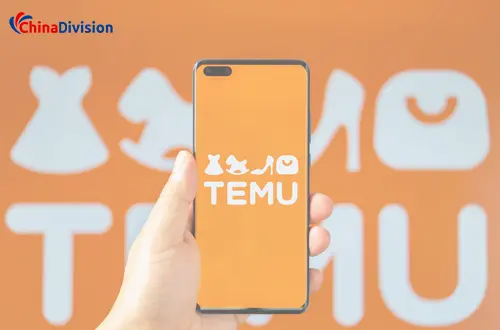Temu Releases What is the Difference Between OBM Channel and 3PL
The OBM (Original Brand Manufacturer) channel launched by the cross-border e-commerce platform Temu on May 7, 2024 is a new merchant supply model. It is mainly aimed at domestic brand merchants with annual sales of a single store of more than or equal to 1 million yuan. . At present, investment has been opened to three major categories: men's clothing, sports and outdoor men's clothing, and maternity clothing. For leading brands that meet the threshold of brand stores, Temu will also provide welfare policies such as review-free version, direct brand price comparison without price verification, and exclusive traffic bonus.
Introduction to OBM of cross-border e-commerce platform Temu
- Domestic brand merchants with annual sales of a single store greater than or equal to 1 million yuan
- A new store needs to be opened with a new entity, and the buyer must apply to join the whitelist.
- Merchants must publish more than 50 products sp.
- Old store entities and their sub-stores cannot enjoy OBM policy benefits.

The current key investment categories of the OBM channel include tops, bottoms, suits, work clothes, and maternity wear.
Although the specific product selection, product review, and stocking processes are similar to "full custody" and still adopt the "domestic pallets sold globally" model, the OBM project is more flexible in terms of product review, price verification, etc., and enjoys a variety of policy benefits.
Compared with the ordinary full hosting model, the OBM project launched this time has certain entry barriers. In addition to the single store sales requirements, new stores also need to be opened with a new entity, and buyers must apply to join the whitelist. In addition, merchants must publish more than 50 product SPUs, and old store entities and their sub-stores cannot enjoy OBM policy benefits.
Clothing products do not need to be recoded or marked. European and American sizes can be selected for backend products, and the conversion code and English wash mark can be affixed to the physical packaging bag. In the process of sending samples for review, the review will be carried out directly according to European and American sizes. The ERP port is connected in the background, making inventory management more convenient.
If you are a leading brand in the industry, you will also enjoy the benefits of the "Brand Direct" zone, global advertising targeted support, and "one-on-one VIP guidance" from the gold medal operations team and industry directors. The most noteworthy thing is that Temu has opened a green channel for price verification for leading brand merchants, allowing direct brand price comparison without using price verification, forming a new pricing mechanism.
The difference between OBM model and third-party warehousing and logistics
Merchant positioning
The OBM channel is specifically targeted at merchants with a certain scale and brand influence, and requires merchants to have a certain sales threshold, such as RMB 1 million or more. There is no minimum sales threshold for third-party warehousing and logistics service providers.
Policy Support
The Temu platform provides a series of preferential policies for qualified leading brand merchants, such as review-free version, direct brand price comparison and exclusive traffic bonus.
Service Scope
Third-party warehousing and logistics service providers provide a series of supply chain services including warehousing management, order processing, logistics and distribution, etc. The OBM channel focuses more on merchants' brand building and product sales.
Market Expansion
As a supply model, the OBM channel helps merchants expand the international market more effectively through the resources and policy support of the platform.
Operational Flexibility
The OBM project provides greater flexibility in terms of product review and price verification, allowing merchants to publish more products and enjoy more policy benefits.
Technical and System Support
The Temu platform provides OBM merchants with technical support such as ERP port connection, which helps merchants manage inventory and sales processes more efficiently.
OBM model
In the OBM model, merchants have complete control over their inventory, warehousing and logistics operations within the United States.
Store products in their own warehouse or use a third-party logistics service of their choice within the United States.
Merchants handle the entire fulfillment process themselves, including shipping products directly to customers after receiving orders through the Temu platform.
In the OBM model, merchants retain full control and responsibility for managing their own inventory and logistics within the United States.
Third-party warehousing and logistics provider
In this model, merchants ship large quantities of inventory to warehouses in the United States, which may be owned by Temu or a third-party logistics provider (3PL).
Temu, or 3PL, handles storage, order fulfillment, and last-mile delivery at these U.S. warehouses.
Merchants do not have direct control over warehousing and logistics operations, but rely on service providers to manage this part of the process.
For third-party warehousing and logistics providers, merchants outsource these operations to service providers, reducing the management of warehousing and logistics, which can effectively save transportation costs.
Temu's OBM channel is a supply model that focuses more on brand building and market expansion. It helps merchants achieve better sales performance on the platform by providing a series of preferential policies and technical support. Third-party warehousing and logistics service providers provide more professional services in logistics and warehousing to help merchants solve supply chain management problems.





